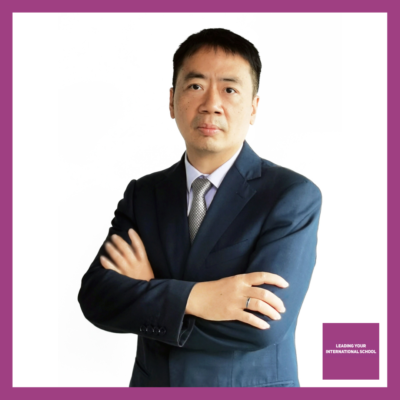by Don Lyu.
In the ever-evolving landscape of international education, the concept of school culture stands as a cornerstone. It not only defines the ethos of an institution but also lays the groundwork for effective education management and continuous instructional enhancement. Nowhere is this truer than in the dynamic context of International Schools in China, where a confluence of cultures and traditions presents unique challenges and opportunities for building a vibrant and cohesive school culture.
Understanding School Culture and its Significance
School culture encapsulates the shared values, beliefs, behaviors, and attitudes that shape the educational environment. It serves as a guiding force that influences students, teachers, and administrators alike. In the realm of international education, school culture becomes even more crucial as it bridges gaps between diverse backgrounds, fostering a sense of belonging and unity. To build a robust school culture, it is vital to address the particular challenges and harness the opportunities presented by the Chinese context.
Navigating Unique Challenges in International Schools
International schools in China encounter a distinct set of challenges when it comes to shaping school culture. One increasingly observable challenge stems from the upbringing of some affluent Chinese students. The so-called “rich second generation (Fu Er Dai)” often grapple with tendencies towards laziness, irresponsibility, and a lack of motivation. At Biguiyuan School Shunde, a transformative shift was witnessed as the school successfully transitioned these students from a culture of entitlement to one rooted in the values of entrepreneurship and innovation (Chuang Er Dai).
Recognizing the pervasive allure of electronic games, schools are promoting engagement in sports, music, and art competitions to divert students’ focus toward constructive pursuits. By fostering an enriched academic atmosphere, students are encouraged to embrace academic challenges with enthusiasm, fueling a culture of continuous learning and growth.
Infusing Chinese and Western Elements
The fusion of China’s rich history with Western pedagogical practices offers a remarkable opportunity to cultivate a unique school culture that resonates with the diverse backgrounds of students. However, this amalgamation requires a nuanced understanding of the intricate interplay between cultural narratives.
Encouraging Chinese students to simply emulate Western nobility or elites within international school settings often misses the mark. The true essence of Chinese student aspirations lies in a different direction altogether. Instead of seeking inspiration from traditional royalties or heroes, Chinese students find resonance with contemporary figures—be it entrepreneurs, businessmen, politicians, or scientists—both from China and the Western world. This inclination underscores their commitment to innovation and a resolute pursuit of self-made success. Thus, school leaders steering Western-branded international institutions must tread thoughtfully, ensuring the promotion of traditional brand values effectively aligns with the students’ evolving mindsets.
A striking paradigm shift is also evident in the cultivation of sporting interests, mirroring the progressive approach of the UK’s elite schools. In the context of China, where the emphasis on academics often eclipses physical pursuits, the elevation of sports can be a transformative endeavor. However, it’s essential to acknowledge that this shift isn’t without its challenges. In a culture where scholastic achievements are paramount and concerns for students’ health run deep, integrating sports into the school culture requires a delicate balance.
Overcoming Communication Barriers
Expatriate teachers in international schools often grapple with language limitations, inhibiting their ability to engage students in profound discussions and model desirable personality traits. Similarly, Chinese teachers may find their influence limited as students assert their independence and self-belief. However, these barriers underscore the necessity of fostering open channels of communication that facilitate meaningful dialogue among students and teachers.
Pathways to an Enriched School Culture
To navigate these challenges and amplify the impact of school culture, visionary school leaders play a pivotal role. Recognizing the unique landscape of international schools in China, these leaders must undertake a deliberate effort to design a culturally inclusive school ethos. This design should seamlessly weave together Western and Chinese elements, creating a tapestry that resonates with students’ diverse backgrounds.
Drawing inspiration from theories of positive psychology, such as Martin Seligman’s work, schools can tailor these principles to cater to the cultural nuances of China. The integration of positive psychology strategies can empower students to develop a growth mindset, resilience, and emotional intelligence—attributes crucial for holistic personal development.
Additionally, the promotion of meaningful conversations among students and teachers can become a catalyst for fostering a positive school culture. Encouraging open discussions about values, aspirations, and the collective responsibility towards building an inclusive community can create a sense of shared purpose and unity.
Conclusion
The journey towards building a robust school culture in International Schools in China is a complex yet rewarding endeavor. As these institutions navigate the interplay of cultures and traditions, they have the unique opportunity to shape the future leaders of a globalized world. By addressing the challenges head-on, infusing the best of Chinese and Western values, and championing open dialogue, these schools can establish a vibrant culture that nurtures excellence, identity, and a profound sense of belonging. Through these efforts, international schools in China can truly become beacons of inspiration and transformation, fostering an environment where students thrive and embody the spirit of innovation and collaboration.
Don Lyu is Deputy Head of the GBA International Education Institute & Head of Student Support Center at Merchiston International School Shenzhen
To connect with him on LinkedIn, click HERE
LYIS is very pround to partner with TIC Recruitment


What an insightful and interesting article! Thank you so much Don! A great example has been used in your work, as a Chinese, I can’t agree more with the ‘Fu er dai’ phenomenon and I am impressed by your genius solutions! Lovely to see such a great integration of two different cultures. I am sure all the leaders who are currently working in bilingual schools and international schools based in China will get a lot out of it.